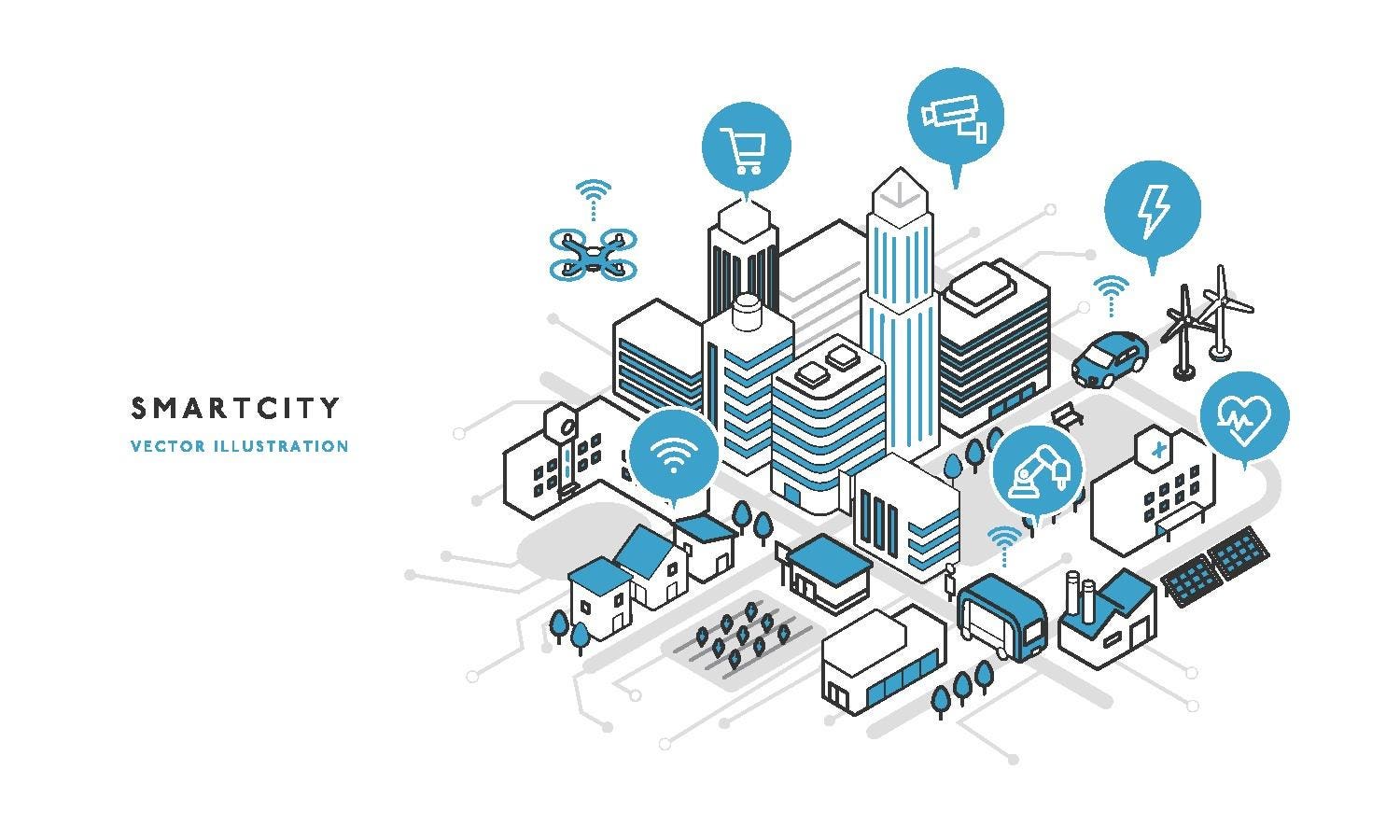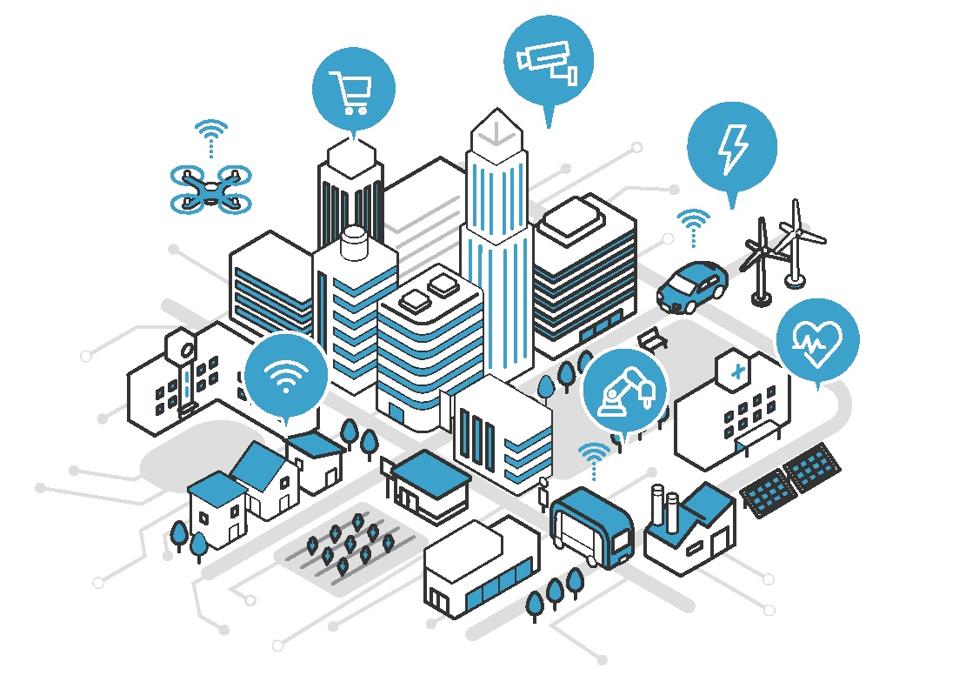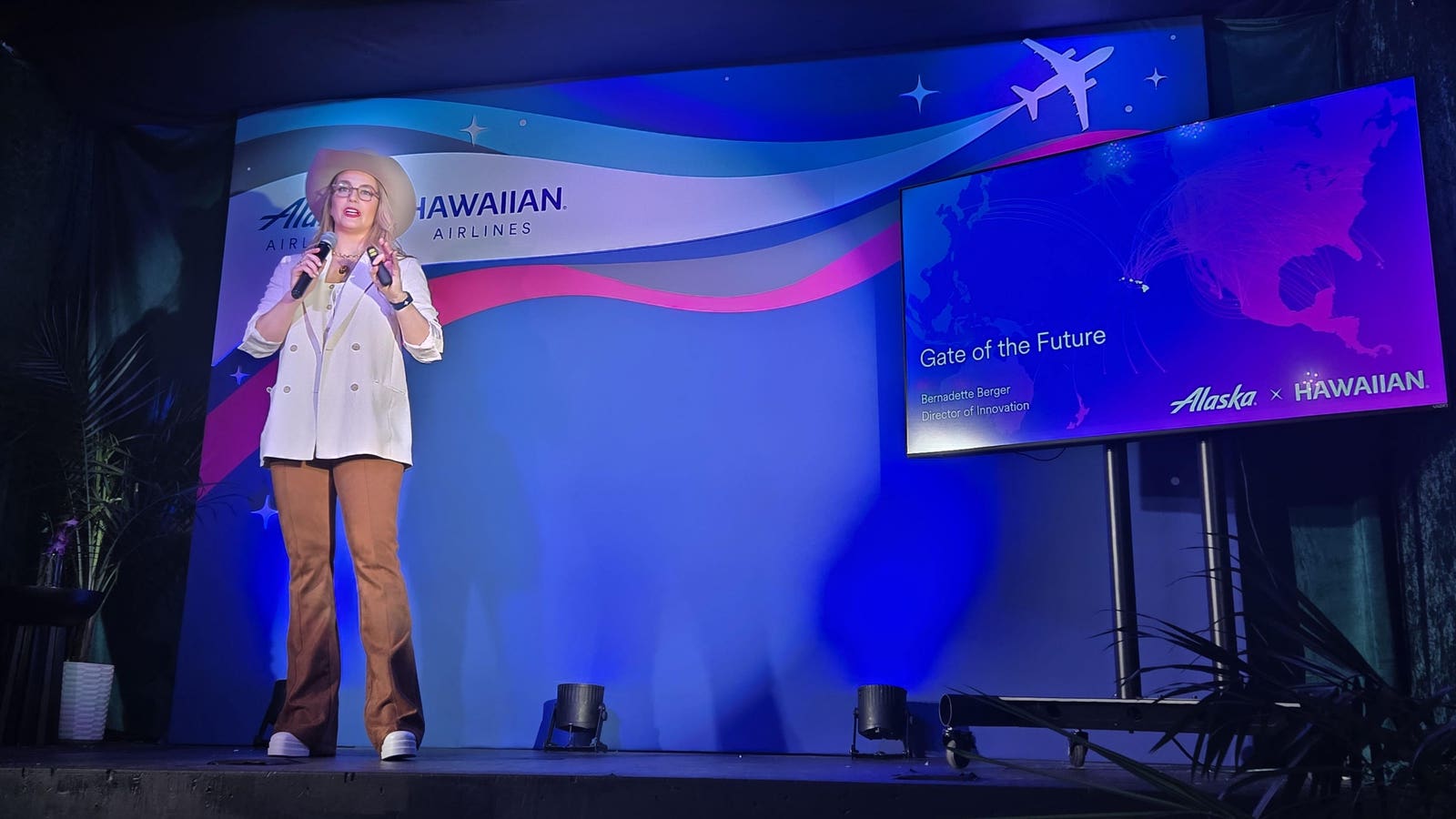Conceptual image of a smart city
The concept of smart cities has risen in the estimation of urban planners of all descriptions around the world. Many believe, or are led to believe, a future smart city or an existing one that’s so remodelled would enhance affordability and sustainability. But will it? To answer that, grasping the concept first should be the right starting point.
In that respect, if assertions by the likes of Microsoft and IBM are taken at face value, a smart city is one that utilizes digital information and communication technology to enhance various aspects of urban life, from infrastructure to public services, citizen engagement to city tax receipts.
This may involve using artificial intelligence, predictive analytics, and more, to improve operational efficiency, sustainability, and the overall quality of life for city dwellers.
To That Smart City And Beyond
However, there are legitimate fears that AI is, or might be, redesigning our cities by stealth from real-team adjustable traffic lights to computer generated digital twins mimicking what whole neighborhoods would potentially look like, even before a single brick has been laid. Furthermore, all that kit and its deployment can’t be cheap and someone has to pay for it, cue the taxpayer.
The concept of smart cities and its challenges came to fore at the Abu Dhabi Infrastructure Summit, held in the Emirate from June 17 to 18, 2025, and evoked mixed emotions among the attendees, albeit with numerous examples of successes.
For instance, Singapore’s holistic balance of economic growth and social inclusivity, or Copenhagen’s Nordhavn district’s 5-minute city model, or for that matter Abu Dhabi’s own Masdar City which balances heritage, innovation and sustainability, given it is backed by the Emirate’s global renewable energy champion Masdar.
Such innovative cities claim to promote a strong sense of place and identity for their residents and community. But their affluence in many ways sets them apart too.
Can their experience and inexorable march to ‘smarter’ ways be replicated elsewhere? The answer is a complex one, according to Daniel Liu, executive director of MORROW Intelligence, a Singapore-based urban advisory firm.
Daniel Liu, executive director at MORROW Intelligence, speaks at the Abu Dhabi Infrastructure Summit … More
“Smart technologies that bring efficiencies are of immense importance. They bring about progressive evolutions in city management. But smart cities don’t come before cities,” Liu said at an ADIS panel.
“Every city has its own individual socioeconomic and investment parameters and critical municipal issues that need to be resolved. So, not all urban planners enjoy some of the advantages that say Singapore or Copenhagen would have.”
Liu added that if the ultimate goal of planners and developers was urban excellence, it is something that doesn’t exist in a vacuum. “Issues of economic and social development cannot be sidestepped. This will likely be a journey of over 30 to 50 years marked by evolving challenges for many cities in the world.”
Smart Decisions Needed Too
Discovering urban excellence, and a smarter future, might in many cases bottle down to making smart decisions and not just smart technology, said Emre Arolat, founding partner and principal of Emre Arolat Architecture.
“The best cities are those with a sense of community and harmony where there is good access to housing, and perhaps the ability to reach life’s essentials within a 15 minute walk or a bicycle ride, if not 5 minutes as noted in the Danish city. That’s a reasonable metric already at play in many urban centers, (e.g. some suburbs in Paris) and its down to smart thinking and building.”
Affordable housing needs to be at the heart of it all and its something that can never be ignored. “But building affordable housing doesn’t mean you have to sacrifice building high value real estate or vice versa, provided planners work on concepts strategically,” he added.
And local, provincial or federal governments around the world can perhaps be the arbiters of where future housing demand may or may not be. Then the challenge can be met in a systematic way, even if the planning and decision making stage is aided by the deployment of digital tools.
Asma Aljassmi, executive director of projects control and operations, Aldar Projects, speaks at the … More
Even desirable affluent places like Abu Dhabi think of affordable housing, according to Asma Aljassmi, executive director of projects control and operations, at Aldar Projects, a developer owned by the government of Abu Dhabi.
“At Aldar we have a clear roadmap for development. From the get-go we incorporate affordability in what we do, what we design and what be build. Its included in our masterplan for specific projects. Being desirable places to live and work in should not be the sole preserve of luxury developments,” she added.
Powering Up Smart Cities
With there being a rising clamor for sustainability, the carbon footprint of smart cities is also being called into sharp focus. The more digital and connected they are, the more electricity they’ll consume, and the bigger the call might be on the power grids servicing them.
That’s quite like the data center conundrum of powering new age technology and consumer needs with fossil fuels which has already reared its head. For, just like hyperscale data centers will be increasingly serviced by power generated from natural gas for decades, so will many smart cities for a considerable amount of time.
Therefore, any lowering of the carbon footprint achieve via digital connectivity and efficiency might well be negated by carbon emissions from the chosen power source. Abu Dhabi’s renewables-powered Masdar City offers a rare example to the contrary, alongside selected European, especially Scandinavian and German, mid-sized townships.
But renewables-powered smart cities largely remain a pipe dream in many countries. This matters, because cities represent nearly 80% of the world’s consumption, and by that argument nearly 80% of the world’s carbon emissions.
These figures are also indicative of the fact that urbanization is proliferating and is unlikely to be reversed. So, the fight against climate change as well as improving living standards probably would be won or lost in the cities, whether they are smart cities or not.









